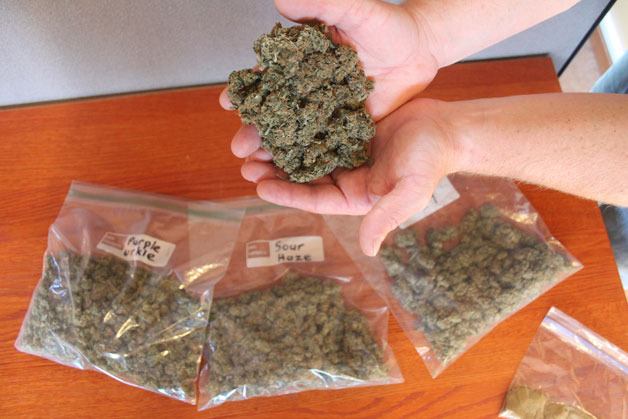So far, 19 applications have been made to the state for recreational marijuana licenses for proposed businesses in Island County.
Only one applicant, however, has proposed opening a retail pot store in the county. The Village Green of Whidbey Island is the proposed trade name for a shop on Kramer Road in Langley.
The Washington State Liquor Control Board is accepting applications for pot retail, pot processing and pot producing businesses until 5 p.m., Dec. 20.
Brian Smith, the spokesman for the agency, said the list of applicants is published each Tuesday until the deadline.
The agency set a quota for the number of retail pot businesses in Island County at four. One is allowed in Oak Harbor and the rest are earmarked for the county at large.
Smith explained that there’s no restriction on the number of grow and processing operations allowed by the county, but there’s an overall, statewide limit of 2 million square feet of marijuana canopy. Smith said that amounts to 40 metric tons of pot, which is estimated to be a quarter of the state’s yearly consumption of the herb.
Six applicants from Whidbey Island have applied for permits as producers, plus four others on Camano.
On South Whidbey, Whidbey Island Woo Hoo applied for a “tier 3” production license for a site on Bayview Road in Langley; Pote, LLC applied for a “tier 3” production license on East Harbor Road in Freeland.
Tier 3 licenses are for the largest of the production sites, according to Smith.
In addition, a tier 1 site is proposed for Greenbank and two “tier 2” businesses are proposed for the North Whidbey area.
Four individuals or groups applied for processing licenses on Whidbey, including one each in North Whidbey, Greenbank, Freeland and Langley; two processing licenses were applied for Camano sites.
Smith said moratoriums on marijuana businesses enacted by local governments, such as the current six-month moratorium in Island County, won’t affect the state’s issuance of licenses.
Licenses will be awarded to applicants that meet the thresholds of the law and pass background and financial checks. If the number of retail applicants exceeds quotas for an area, they will be given out by lottery, he said.
The county’s land-use regulation for pot businesses, which planners are currently working on, may impact the size, shape and location of the proposed businesses, but that all depends on the specifics of the rules.
Liquor Control will likely issue licenses in March and businesses will probably open in June, Smith said.



